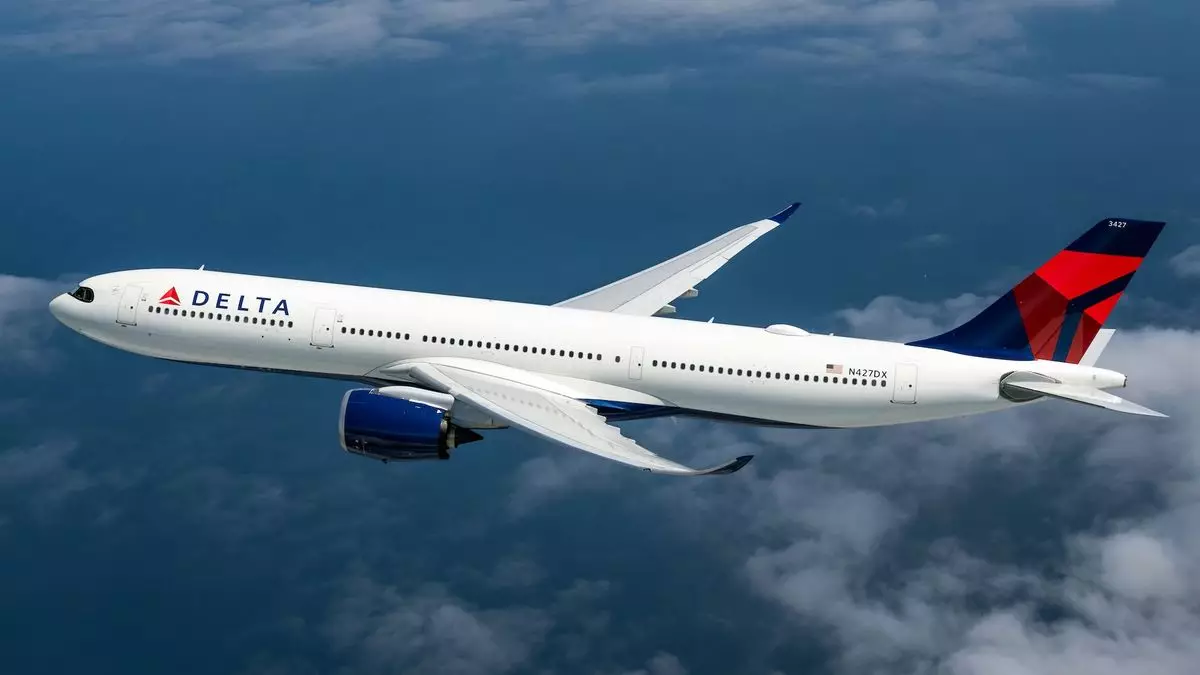Artificial intelligence has long been heralded as a transformative tool for industries, promising efficiencies and tailored experiences. However, when it comes to dynamic airline pricing, the debate intensifies around whether AI technology truly benefits consumers or subtly exploits them. Delta’s defense against allegations of individualized fare discrimination raises critical questions about transparency, ethics, and consumer rights. While the airline insists that its AI-driven pricing strategies are rooted in the use of aggregated data to optimize revenue and serve customer needs, critics argue that beneath the surface lies a more insidious motive—one that could erode trust and deepen inequality.
In essence, the core issue revolves around the extent and transparency of data utilization. Delta claims that it employs “aggregated data,” including demand patterns and route specifics, rather than personal or sensitive information. Yet, the line between aggregate and individualized data can be blurry, especially as AI systems become more sophisticated. Does this technology genuinely serve to benefit travelers by offering better prices, or does it subtly manipulate the most vulnerable by tailoring fares to the customer’s willingness to pay? The lack of clear, publicly accessible information about precisely what data goes into these algorithms fosters skepticism and fuels accusations of covert discrimination.
The Danger of Perceived Discrimination in the Age of AI
The broader implications of Delta’s AI pricing strategy extend beyond mere competitive advantage. When airline executives talk about “personalized prices,” it invokes fears of a future where travelers are subjected to a form of digital profiling—where their purchasing history, behaviors, or even socioeconomic status determine what they pay. Such practices can deepen social inequalities, especially during times of economic hardship, when families are already feeling the squeeze of rising inflation and living costs.
Legislators and advocacy groups have expressed legitimate concerns about privacy and fairness. The letter from Senators Warner, Blumenthal, and Gallego underscores this point, emphasizing that these practices could lead to fare increases that predate a consumer’s actual willingness or capacity to pay. Their call for transparency reflects a broader societal demand: that corporations using cutting-edge AI tools must clarify how exactly customer data is used and ensure that these strategies do not result in systemic discrimination. Consumers have a right to expect that AI, despite its technological complexity, operates under clear ethical boundaries.
Corporate Responses and the Power of Public Trust
Delta’s response, articulated through its chief external affairs officer, attempts to reassure the public that discriminatory pricing is not in its interest and that the company’s AI use is strictly data-driven and non-exploitative. However, such assurances often fall short of what consumers genuinely seek—transparency and accountability. When Delta states it uses “aggregated data,” it sidesteps the critical question of whether individual tailoring could still be a possibility, even if indirectly.
The contrasting stance of American Airlines CEO Robert Isom, who emphasizes AI solely for operational and efficiency improvements rather than pricing, further exposes the rift in the industry. In an era where digital manipulation is increasingly scrutinized, airlines must recognize that consumer trust hinges on honest communication about their AI practices. Misleading or opaque disclosures can severely damage brand reputation, especially when users discover they may be paying different fares based on data profiles that they did not knowingly share.
Moreover, the situation underscores a fundamental challenge for regulators: how to establish clear standards and oversight for AI applications in pricing. Without stringent regulations, companies may continue deploying these tools with limited public accountability, risking a future where AI-enabled pricing becomes a tool of digital profiling rather than service enhancement. The striking disparity between what Delta tells investors about using AI for individualized pricing and the public’s perception of such practices could erode consumer confidence and invite regulatory crackdowns.
The Ethical Crossroads in Innovation
As AI becomes more embedded in price-setting mechanisms, the core ethical dilemma remains: how to balance innovation with fairness. Companies like Delta argue that their use of AI is designed to benefit both the business and the customer—by optimizing revenues and potentially offering better, more tailored prices. Yet, this perspective often underestimates the vulnerability of less privileged consumers, who may end up paying the highest prices without ever understanding why.
The industry’s long-term success will depend on whether airlines can develop AI systems that are transparent, equitable, and accountable. Innovating does not mean sacrificing ethics. Instead, it demands a proactive approach—one that clearly communicates how data is used, offers consumers control over their information, and safeguards against discrimination. Only then can AI-powered pricing transcend its potential pitfalls to become an agent of genuine customer benefit.
The controversy surrounding Delta’s AI-driven fares highlights a pivotal moment in the intersection of technology and consumer rights. It challenges us to rethink how corporations deploy sophisticated algorithms and whether profit motives align with societal well-being. The future of AI in pricing is not simply about efficiency; it is a test of our collective values—whether innovation will serve all equally or deepen existing inequalities.


Leave a Reply